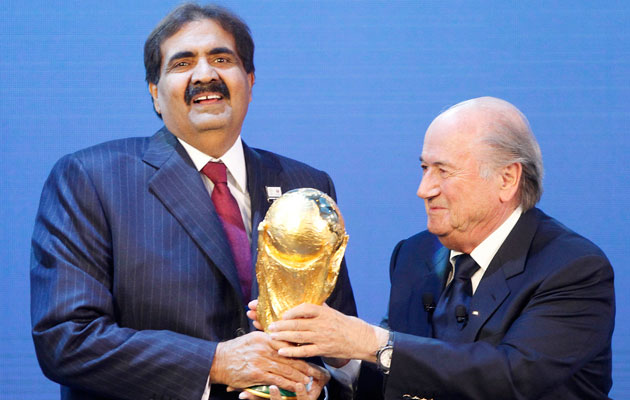Hans-Joachim Eckert, FIFA’s ethics judge, expects to make a formal statement about the progress of the 2018-2022 World Cup bid scandal investigator by the middle of next month.
But there will no no wholesale publication of the initial report compiled by ethics prosecutor Michael Garcia.
Eckert clarified that it cannot be published in its entirety because of standard lawyer-client confidentiality rules governing the interviews undertaken – which are thought to have numbered more than 70 over two years.
Asked when he would issue an issue statement, Eckert said: “The report of the investigation into the bidding process for the awarding of the 2018 and 2022 FIFA World Cups comprises hundreds of pages as well as numerous annexes. Carefully working through all this material takes time. As things currently stand, I expect the statement to be ready by mid-November at the latest.”
The statement would “contain an overview of the investigation report, a summary of the main findings, conclusions and recommendations of the report, as well as a brief evaluation of the same.”
Eckert, in an interview with FIFA.com, went on to try to clarify issues over obstacles to publishing the report.
He said: “Firstly, it must be pointed out that the main report has been produced not by Michael Garcia alone, but also by the deputy chairman of the investigatory chamber of the FIFA Ethics Committee Cornel Borbély. In fact, the report into Russia and the USA was produced solely by Cornel Borbély.
“This is because Michael Garcia was unable to take part in some parts of the investigation due to the possibility of conflicts of interest, for example in the case of the American bid (as he is a US citizen). Publishing the report in full would actually put the FIFA Ethics Committee and FIFA itself in a very difficult situation legally.
“What is more, we have to respect the personal rights of the people mentioned in the report, which in the case of full publication of the report would in all likelihood not be possible.”
Eckert denied that he and Garcia took opposite standpoints on publication.
“That is not the case,” said Eckert. “Michael Garcia has never said that the report should be 100 per cent published. He merely said that the ‘appropriate’ publication of his report should be authorised.
“The deputy chairman of the adjudicatory chamber and I now have the task of drawing up this appropriate form for publication.
“Part of my current examination involves deciding what form this appropriate publication should take, whether this means issuing a statement regarding the investigation report or whether certain parts of the investigation report will be published while maintaining anonymity, or indeed a combination of these possibilities.
“This decision is exclusively a matter for the adjudicatory chamber – neither the investigatory chamber nor the FIFA Executive Committee can decide. The main requirement is that personal rights must not be damaged.”
The report focused on events leading up to December 2, 2010, when the FIFA executive voted, amid controversy, to award the 2018 World Cup finals to Russia and the 2022 finals to Qatar.







